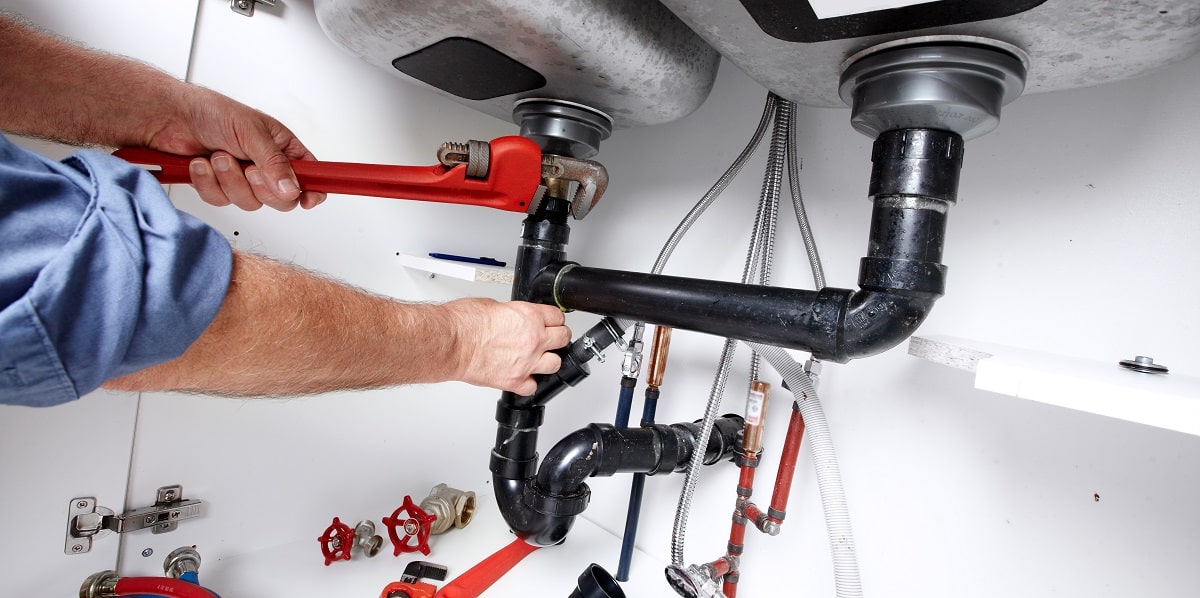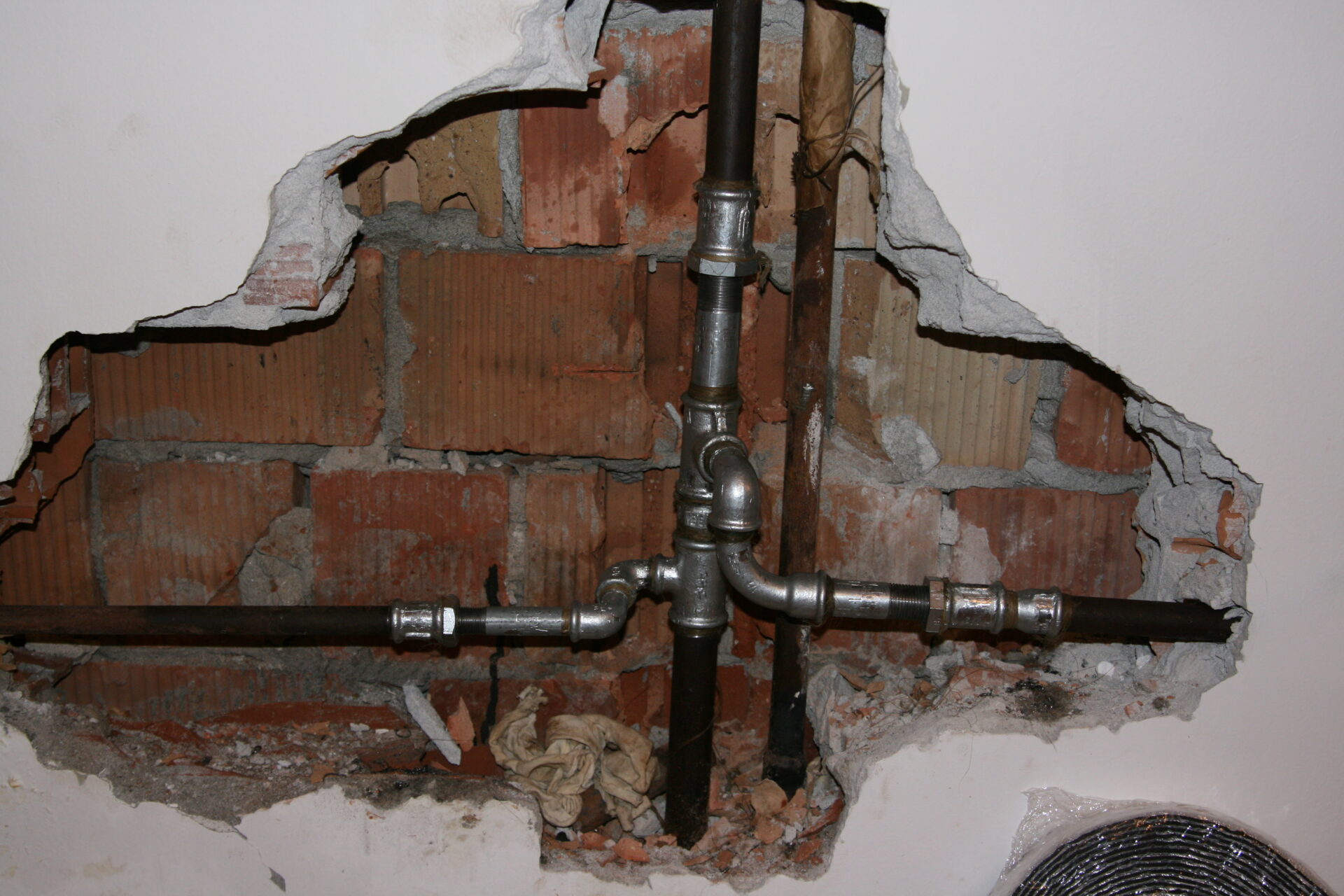Each person seems to have their own unique opinion with regards to Plumbing Problems In Old Homes.

Older homes frequently include beauty, personality, and background, but they can additionally bring a host of pipes concerns. Whether you're dealing with maturing pipelines, low tide stress, or leakages, knowing just how to address these typical troubles is critical to keeping a risk-free and practical home. In this overview, we'll check out the normal plumbing difficulties encountered by older homes and give practical remedies to maintain your pipes in top form.
Understanding Common Pipes Problems
Aging Pipelines
One of the most usual concerns in older homes is maturing pipes. Relying on the age in which your home was developed, the pipes could be made from materials that have worn away with time, such as galvanized steel, cast iron, and even lead. These materials can corrode, come to be brittle, or develop leakages, resulting in water damage and prospective health hazards.
Water High Quality Testing
Older pipes can affect the top quality of your water. Conduct a water quality examination to look for impurities such as lead, rust, or other contaminations that might be presented by aging pipelines.
Solutions for Common Pipes Concerns
Replacing Aging Pipelines
If your home has old, deteriorating pipes, take into consideration replacing them with contemporary products like copper or PEX. This can be a significant investment, however it will certainly protect against future issues and improve the security and dependability of your pipes system.
Taking Care Of Low Tide Stress
To take care of low tide pressure, beginning by cleaning or changing old fixtures and getting rid of mineral accumulation in the pipelines. If the problem continues, it might be necessary to replace areas of rusty pipelines.
Fixing and Replacing Dripping Pipes
For small leakages, you can make use of pipe clamps or epoxy putty as a temporary solution. Nonetheless, it's finest to replace leaking pipelines entirely to stay clear of further damages.
Updating Components
Updating old components to contemporary, water-efficient models can boost your home's plumbing efficiency and reduce water usage. Look for components with the WaterSense tag for the best effectiveness.
Dealing with Pipeline Deterioration
If your pipes are rusted, changing them with corrosion-resistant products like copper, PVC, or PEX is the very best option. Normal evaluations and water high quality maintenance can help prevent better rust.
Low Water Pressure
If you're experiencing low tide pressure, maybe because of mineral deposits, rust inside the pipelines, or old components that are no more operating efficiently. This can be a major hassle, particularly in areas like showers and sinks.
Dripping Pipes
Leakages are one more frequent issue in older homes, typically triggered by rusty or damaged pipes. Also little leakages can cause significant water damages, mold development, and enhanced water costs if not addressed immediately.
Out-of-date Components
Out-of-date plumbing fixtures such as faucets, toilets, and showerheads not only look old but may additionally be much less effective, prone to leaks, or incompatible with contemporary plumbing requirements.
Pipeline Corrosion
Deterioration is an usual issue in older pipes, especially those made from galvanized steel or cast iron. Rusty pipes can limit water circulation, trigger discoloration, and eventually result in leakages or pipe ruptureds.
Analyzing the Condition of Your Pipes
Examining Noticeable Pipelines
Begin by evaluating any kind of noticeable pipes in your home, such as those in basements, crawl spaces, or under sinks. Try to find signs of deterioration, leakages, or corrosion, which can indicate underlying problems.
Looking for Leakages
Check for leaks by evaluating areas around faucets, bathrooms, and under sinks. You can additionally monitor your water meter before and after a period of no water make use of to spot surprise leaks.
When to Call an Expert
While some plumbing concerns can be managed with do it yourself solutions, there are times when it's finest to call a professional. If you're managing significant leaks, extensive rust, or are uncertain regarding the condition of your pipelines, a certified plumbing technician can give professional evaluation and repair work.
Preventive Maintenance Tips
Normal Examinations
Regularly inspect your pipes system for indications of deterioration. Capturing problems early can avoid costly repair services down the line.
Water Stress Regulation
Ensure your water stress is within the advised variety to stay clear of worrying your pipelines and fixtures. A plumbing can mount a pressure regulatory authority if required.
Water Quality Maintenance
Mount water filters or conditioners if your water quality is poor. This can safeguard your pipes and components from damages brought on by hard water or contaminants.
Positive Pipe Substitute
If your home has older pipes, consider positive substitute before significant issues develop. This can save you from emergency fixings and water damages.
Conclusion
Managing pipes concerns in older homes needs a mix of vigilance, preventive upkeep, and timely upgrades. By comprehending the typical difficulties and understanding when to seek expert assistance, you can ensure your plumbing system remains useful and reputable for many years to come.
Common Plumbing Issues in Older Homes
Pipe corrosion
Pipe corrosion is a common plumbing issue in older homes. Several factors can cause pipes to corrode:
Water: Ironically, water is the number one cause of pipe corrosion. When water seeps into cracks in pipes, it can cause the metal to rust and break down, leading to leaks or even burst pipes.
Oxygen: Oxygen is another significant culprit in pipe corrosion. When oxygen interacts with water, it can cause the metal to oxidize and weaken.
Chemicals: Chemicals such as chlorine and fluoride can also contribute to pipe corrosion. These chemicals can react with the metal in pipes, causing them to break down over time.
Leaky pipes
Pipes that leak is one of the most common plumbing issues plaguing residents of older houses. While a small leak may not be a problem initially, it can lead to significant problems if left unaddressed. In addition, water damage can be very costly to repair and may cause damage to electric fixtures, promote mold growth and cause many other issues.
Worn-out fixtures
Older homes often have worn-out fixtures which may need replacement. Over time, the finishes on fixtures can wear down, exposing the underlying metal to corrosion. This can cause fixtures to leak or even break completely. It s best to have a professional plumbing contractor regularly inspect the fixtures in older homes and replaces them if necessary.
Faulty water heaters
A leaky water heater can cause severe damage to the home as it can be both a flood and fire hazard. Call a plumber immediately if it appears that the water heater might be leaking.
If the heater isn t working correctly, it could be because the pilot has gone out. The pilot light going out may indicate gas supply issues or leaks. It is also worth checking the thermostat to see if it needs to be adjusted.
If the water heater is making strange noises, it could be due to sediment buildup in the tank. Sediment can interfere with the heating elements and cause them to overheat. Overheating can damage the tank and shorten the lifespan of the water heater.
https://www.norfleetfamilyplumbing.com/blog/common-plumbing-issues-in-older-homes

Hopefully you enjoyed reading our section on . Thanks so much for spending some time to read our short article. Sharing is caring. Helping others is fun. We truly appreciate reading our article about Plumbing Issues in Older Properties and How to Fix Them.
Instant Quote